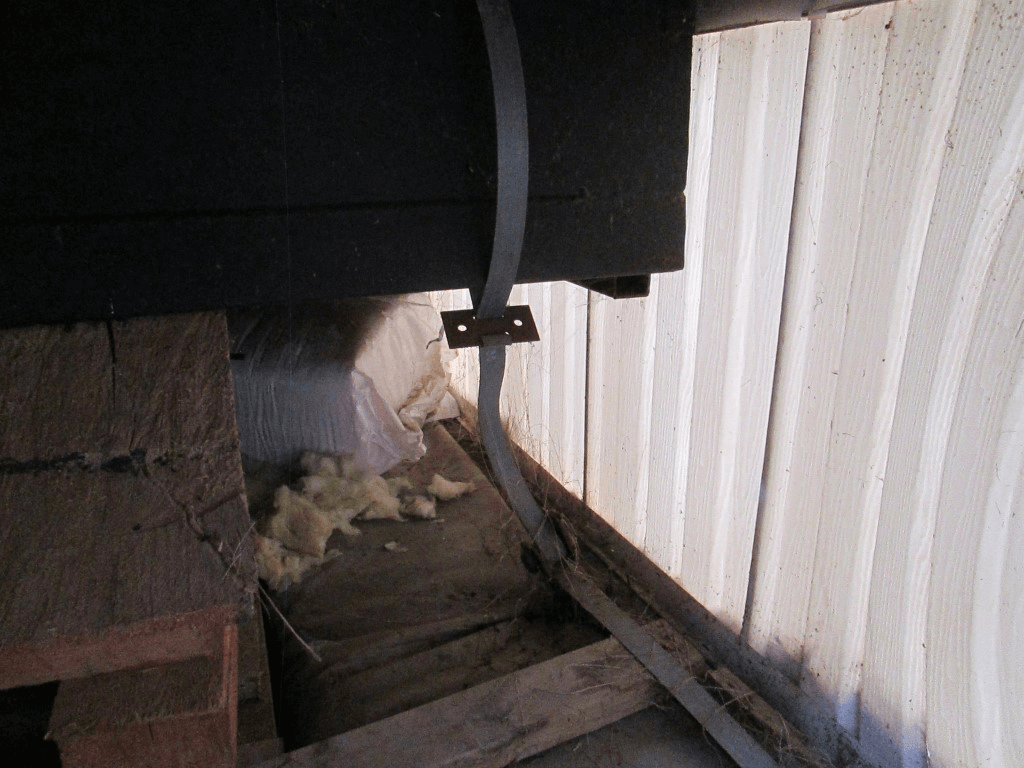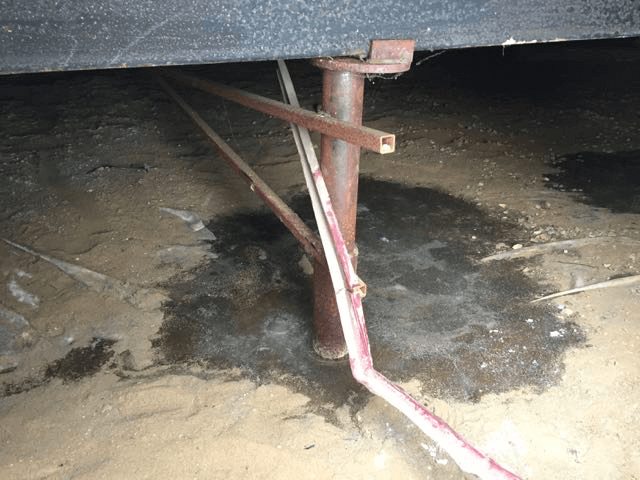What to Consider When Buying a Mobile Home
“Should we buy a mobile home?”
This is a question I am frequently asked as a buyer’s specialist. The truth is, the answer isn’t necessarily an easy one.
If you are thinking about purchasing a mobile home, then I will tell you some of the things to consider. It matters because if mistakes are made, they can be very very costly later!
Sellers should also take notes as some of this information can be taken into consideration when preparing your mobile home for sale.
What's Awesome
Let's first go over the main reason why buyers tend to gravitate towards mobile/manufactured homes:
A mobile or manufactured home is an affordable option in the Fort McMurray market. The majority are listed in similar price-points as apartment or townhome properties; however, mobile or manufactured homes offer a larger square footage, are a completely detached property, and, most importantly, offer a yard that is exclusively yours. Mobiles are sometimes freehold (without condo fees) and they sometimes have a small bare-land condominium fee. Privately owned mobile home parks that instate a bare-land condo fee usually take care of snow removal, garbage removal, water/sewer, etc. and fees are typically under $200/month in Fort Mac.
Crucial Considerations
As great as the above sounds, there are a few crucial things to know and take into consideration:
1) Depreciation
2) Tie-downs/anchors
3) Extra care
A look at each will really help you...
1) DEPRECIATION
Depreciation…
Boring word. I know.
It doesn’t sound super exciting, but, second to property value, I believe it is the thing that is probably MOST paid attention to when a lender is reviewing an appraisal report to approve financing for the purchase of a mobile home.
And if THEY care, then there must be a good reason!
Here are a couple of quick definitions before explaining the basics of depreciation and why it is so utterly important when considering a mobile property:
The physical life of a property can be well over 60 years depending on the type of construction and its overall maintenance. In some parts of Canada, many buildings are hundreds of years old.
Economic life or useful life is how long the improvements will contribute to the overall property value before they are demolished and the land redeveloped. Economic life is normally shorter than the physical life. Keep in mind that the majority of mobiles will see an economic life of approx 45 years (much shorter than other types of real estate).
Effective age is based on the property’s present condition and general overall maintenance. Effective age can be lesser than or greater than its actual age at the date of the appraisal. It is the responsibility of the appraiser, based on their inspection of the building, to estimate the effective age of the subject property.
The remaining economic life (REL) is the difference between economic life and effective age. The REL is the remaining expected economically productive lifespan of the structure. It changes due to market conditions and the building’s overall maintenance.
There are several ways that depreciation of a property can be calculated; however, the most commonly found on a standard appraisal form is the Economic Age - Life method.
The economic age-life method is a quick and easy method to apply and may be used in form reports to give an estimate of the building’s depreciated value. It is based on the building’s effective age divided by its economic life. However, this method does not consider individual short-term items like the furnace, hot water tank, etc. The appraiser can account for newer short-lived items by adjusting the effective age, thereby reducing the amount of the depreciation charged against the property. Via sauder.ubc.ca
Here's an example of how REL is calculated:
You are looking to purchase a 2005 mobile home. It’s actual life is 13 years old. It has an economic life of 45 years. It has been immaculately maintained and has seen some major upgrades. After a full inspection of the property, the appraiser determines that even though the home is 13 years old, it compares similarly to a mobile that is only 3 years old (this is the EFFECTIVE AGE). EFFECTIVE AGE divided by ECONOMIC LIFE = amount depreciated. So 3 divided by 45 = 7%. ECONOMIC LIFE less EFFECTIVE AGE = Remaining Economic Life. So 45 (EL) - 3 (EA) = 42 (REL).
Let's take this a step further. When qualifying for a mortgage, it is typically approved on a 25-year amortization (the amount of time to pay off your loan). If the mobile is older and has not been well maintained (for example, a 1998 mobile that has seen minimal updates/maintenance), then the remaining economic and effective life may be the same (in this example, 20 years). If the economic life is 45 years and the effective life is 20 years, then that only leaves 25 years of remaining economic life (45 - 20 = 25). This means you MAY or MAY NOT qualify for a mortgage on this property, and if you do, then when it comes time for you to sell, there may not be enough remaining economic life for the next buyer to qualify for a mortgage.
I hope you are still with me and reading! This can be a lot of information and slightly difficult to explain in only a couple of paragraphs. If you have more questions about this, be sure to schedule a buyer consultation with me or one of our other amazing buyer specialists and we would be happy to explain more in-depth.
So that is the quick course on depreciation.
What else really matters?
2) TIE-DOWNS/ANCHORS
The next hurdle that can come along when purchasing a
mobile is proper anchoring, or should I say, the lack thereof. If a mobile home is NOT properly anchored, then lenders will typically view mobile/manufactured homes as a chattel. This means it is believed that the mobile or manufactured home can easily be (re)moved from the site, which means higher risk to the bank.
Definition of Chattel by Merriam-Webster
Via merriam-webster.com Definition of chattel: an item of tangible movable or immovable property except real estate and things (such as buildings) connected with real property.
In order to avoid or combat this concern, lenders will ask for the mobile property to be tied-down/anchored. If you are thinking about selling your mobile home, then this is something you may want to look into.
On older mobile/manufactured homes, it is typical to see them positioned on wooden blocks or piles with metal strapping loops around the metal chassis of the mobile and anchors into the ground.

On newer mobiles/manufactured homes, it is typical to see steel piles welded to the chassis and then anchored into the ground, permanently affixing the home to the site.

SPECS SHEET/MODULAR HOME SERIAL NUMBER
On every mobile/manufactured/modular home, there will be what is called a spec sheet. It is typically found on the inside of the electrical panel cupboard door, but also can sometimes be found inside the kitchen cabinet doors (typically on older mobiles). The sheet is usually white in colour with the words ‘DO NOT REMOVE’ written across the top of it.
If you are a seller and you plan to renovate your mobile and need to remove whatever this sheet is affixed to, PLEASE keep the sheet as buyers will most likely need this when they are looking to purchase your home.
On the spec sheet, you will find useful information like the make/model/serial number of the home, the year it was manufactured, and the address where it was manufactured. You will also be able to find info on insulation, original appliances, furnace, and hot water tank. This sheet is the guide to your property and EXTREMELY important. Next to this sheet, there will often be a large sticker with the CSA number on it. It will have bold writing and say something along the lines of CSA MODULAR HOME (based on the standards of CSA A277 and the National Building Code as detailed on the specification sheets inside the house). It will list the serial number, which should match the specification sheet.
As a buyer, it is good to know that this is all information that your lender will most likely request when approving your financing. If the lender is not concerned about value, then sometimes appraisers are hired specifically just to inspect the property for anchoring and the CSA serial number/spec sheet.
3) EXTRA CARE
Lastly, a few things to consider regarding extra care of your mobile home: We live in an extremely cold climate. With plumbing running underneath the mobile home, it is important that homeowners either heat-trace their pipes OR ensure their skirting which encloses the bottom of the mobile has exceptional insulation. These steps will avoid pipes bursting on those extra cold days.
Also be sure to keep skylights clear of snow (shovel the snow off from around it on the roof). This is probably one of the most common forms of water damage I see on mobiles (or any home with a skylight).
And Finally!
A mobile/manufactured home can be an affordable option when entering the market and wanting a yard for the kids to play or for the fur-babies to run in.
However, it is extremely important that proper due diligence is taken to ensure salability of the property in the future. If not, then you could lose a lot of money. It is also important that when purchasing a mobile, you are doing so knowing that you will need to take extra care in the upkeep of the property in order to maintain an acceptable remaining economic life for resale.
Thank you for reading! If you have further questions, please contact an A-Team member today. We are always happy to help! :)